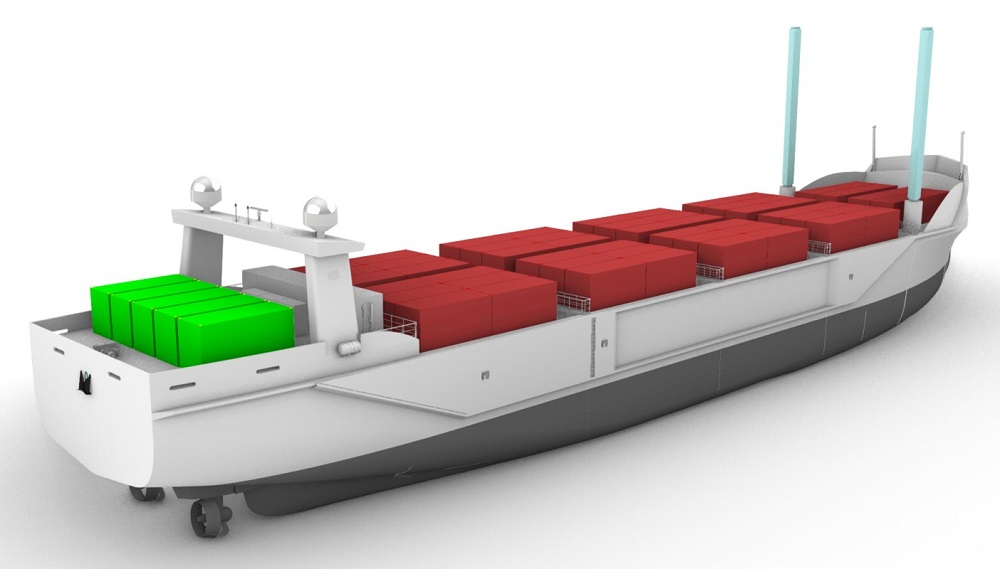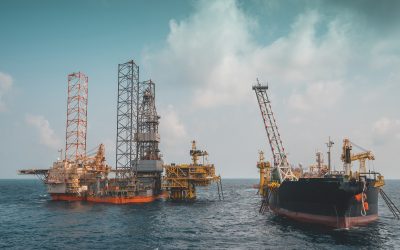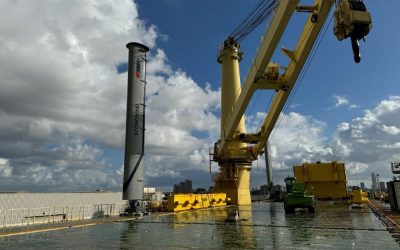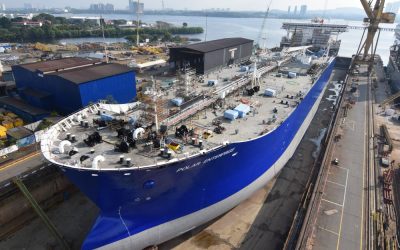Belgium firm to harness autonomous operation in North Sea and English Channel as economic enabler of alternative propulsion systems
The promise of autonomous, zero-emission vessels is tantalising. They offer ship operators and owners a potential key to safer voyages, reduced costs, enhanced efficiency and minimal environmental impact. While fully autonomous transoceanic commercial cargo ships are not quite on the horizon yet, there are a number of initiatives underway to develop the technology necessary for autonomous freight transport on inland waterway and short-sea routes, including one that aims to have uncrewed container ships navigating the world’s busiest shipping lane by 2026.
Zulu MASS, from Belgian maritime innovator Zulu Associates, is one of the most daring autonomous ship designs to date and is set to be the first of its kind to have the capability of operating autonomously as a zero-emissions vessel in the English Channel and North Sea. The 200TEU short-sea container ship concept, which has received approval in principle (AiP) from Lloyd’s Register, will be fully electrical and powered by modular energy containers provided by established energy storage companies using batteries and/or hydrogen-based power systems. In addition to zero-emission electrical propulsion, the ship will be equipped with auxiliary wind propulsion, and the feasibility of wave propulsion is being investigated.
The vessel’s newly launched concept design has been produced by Dutch naval architects Conoship International. With a length of 105m, breadth of 17m and a draught of 5m, Zulu MASS is designed to carry 45ft pallet wide containers and is planned to be initially operational with Zulu Associates subsidiary Anglo Belgian Shipping Company on green corridors between the European continent and the United Kingdom.
“We’re delighted to be working with Conoship International who share our passion for innovation,” says Zulu Associates chief executive Antoon Van Coillie. “Working with Conoship we are challenging ourselves to build the most advanced and innovative vessel we can. As a result, apart from being fully electric and autonomous, we’re adding wind blades and examining wave foil propulsion. This is an exciting time for short-sea shipbuilding. Traditional concepts are being challenged to drive change and enable new zero-emission shipping possibilities.
He adds: “Autonomy is still in its infancy but we want to show what is possible and support the process of regulation keeping pace with innovation. As a result, the Zulu MASS is designed to be unmanned as a part of a Maritime Autonomy System, which will allow it to compete with fossil-fuelled or hybrid vessels.”
Van Coillie, an ex-banker with 20 years’ experience in financial services, founded Blue Line Logistics in 2011 inventing and developing the pallet shuttle barge (aka Zulu) concept for moving palletised goods on inland waterways. Since then he has initiated programmes to develop autonomous vessels for inland and short-sea freight, establishing Zulu Associates in 2019.
Last summer a Blue Line Logistics-owned pallet shuttle barge, Zulu 4, successfully completed remote-operated and autonomous transport demonstrations for the AUTOSHIP project, which is part of the EU research programme Horizon 2020 and is aimed at increasing EU shipbuilding and ship technology capabilities through the advancement of next generation autonomous ships and demonstrating practical applications of the technologies. During the demonstrations the barge navigated a 16.5km circuit on a busy Belgian inland shipping route and also demonstrated berthing and unberthing capability. To achieve this, the vessel was upgraded with Kongsberg Maritime onboard control technology, while an onshore remote operation centre provided support.
“Zulu 4 has now been decommissioned as a platform for autonomous operation and continues to operate manned in its normal cargo capacity,” Van Coillie tells TNA, adding that Zulu Associates’ focus is firmly on future-proofing short-sea and inland shipping with a fleet of newbuild autonomous, zero-emission vessels and barges – the company is also developing an autonomous, electrically-powered inland waterways 90TEU X-Barge, designed by Naval Dynamics of Norway for container and dry bulk shipping, which is currently in the final stages of construction design.
Van Collie notes that existing vessels are very difficult to convert into ‘zero-emission’ ships. Zulu Associates’ concept is disruptive, he says, in the sense that the company is talking about completely new ships, conceived to consume as little energy as possible and to run on electricity.
He continues: “By making vessels to operate without crew on board during transit – i.e. all systems, not just navigation, need to be able to operate with no crew on the vessel – one changes the economic equation of the operation of the vessel, hence creating a margin that helps to pay for the more expensive non-fossil fuel propulsion.”
This margin, he notes, is created not only through significant reduction in crew costs and onboard facilities, but also through more efficient routing and increased safety and reduced insurance costs, as the potential for human error will be significantly reduced.
Van Coillie anticipates that plans for both Zulu MASS and X-Barge will be forwarded to shipyards this year and that the first vessels will be delivered by the end of the first quarter of 2025. “We then have a year to prove our proof of concept,” he says.
“Initially, the vessels will not be fully autonomous,” he explains. “There will still be crew on board, which will control and support the systems running on artificial intelligence. First, we need to prove that the concept works efficiently and safely. After a year, we sail without a crew.”
Once sailing autonomously, the Zulu MASS vessels will be monitored and, if necessary, steered by personnel in a control room ashore. One person will eventually be able to monitor five to 10 vessels simultaneously, according to Van Coillie.
Taking advantage of emerging regulations
He notes that the main challenge facing Zulu MASS is regulatory but says that the Belgian government’s championing of marine innovation has been invaluable. The country established a legal framework for unmanned vessel pilot projects in the North Sea in July 2021. “That has given us the confidence to embrace and invest in Zulu MASS where some in the industry were being much more cautious,” he says.
“The agreement between Belgium, the UK and Denmark is also very important,” he adds, referring to a memorandum of understanding (MoU), ‘On Cooperation Regarding the Operation of Maritime Autonomous Surface Ships (MASS)’, signed by the three countries in September 2023. The MoU seeks improve collaboration in facilitating the increased use of digital technologies and autonomous systems on ships and the signatory nations have agreed to share knowledge regarding ongoing activities in these areas, with efforts to be made to involve other North Sea countries in the group and widen its activities.
In particular, the MoU looks to facilitate at-sea operation of maritime autonomous surface ships technologies in the North Sea, to ensure that they can be operated safely under the different national frameworks and requirements of each of the signatory countries. “This should harmonise the procedure to obtain approval for autonomous vessels operating between the countries, resulting in a single request replacing the need of having to apply for two or more permits,” Van Coillie says.
“We aim to seize the initiative of this opportunity and get Zulu MASS in the water as a world first and industry trailblazer in 2025,” he adds.
A recent addition to the Zulu Associates team has been Ann-Sofie Pauwelyn as chief regulatory officer. She joins director James Fanshawe, who retired from the Royal Navy in 2005 and now chairs the UK’s Maritime Autonomous Systems Regulatory Working Group, and chief technology officer Jan Tellkamp, a naval architect with over 20 years of experience in the marine industry including work on the use of fuel cells and low-emission fuels.
Pauwelyn’s previous experience includes working on the creation of new regulations, safety guidelines and test approval procedures for unmanned and autonomous shipping at the Flemish Inland Waterway Authority. “Ann-Sofie joined Zulu Associates to further work on policy and regulations for autonomous ships,” explains Van Coillie. “She brings a wealth of know-how and contacts… combined with the know-how and experience of Jan and James, we are now well equipped in that area.”
Next steps
With the concept design for Zulu MASS unveiled, aside from building the first vessels the next step for Zulu Associates will be signing on clients to time charter the ships. “In parallel it is also establishing the partners that will provide the infrastructure for zero-emission energy provision, be it batteries or hydrogen,” says Van Coillie.
He also points out that while all of the technologies required to have Zulu MASS sailing uncrewed exist in different forms, there is a need for integration. “This will need more development in the coming year or two, mainly in the area of AI-driven decision making,” he concludes.






